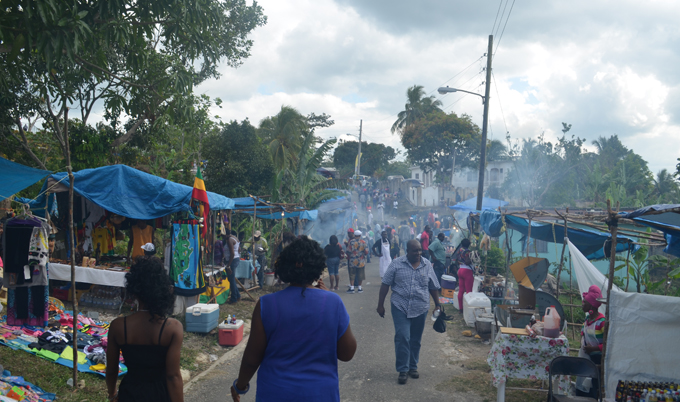Food Security
Improving Food Security in Maroon Communities
Jamaican Maroons are the descendants of runaway slaves from the 17th century who established their own society of free people in the mountainous jungle region, now called ‘Cockpit Country.’
After the defeat of the British militia in 1739, the British signed a peace treaty, known as the Articles of Pacification, with the Maroons of Trelawney Town.
The treaty guaranteed the Maroons freedom on the land they settled and allowed small-scale trading in the markets. From then on, the Maroon communities lived separately from the rest of Jamaican society.
This separation has enabled them to retain their African heritage through the centuries. The Maroon people do not consider themselves citizens of the State, but rather as ‘a nation within a nation.’

Due to these historical land claims, the Maroon communities do not pay land taxes.
As a result, the Jamaican Government do not maintain the roads within these areas. This means that the Maroons are often left to rely on unreliable middlemen called ‘higglers.’
Roads are an essential part of crop transportation to and from the markets which means that, without government involvement, the damage caused by poor weather conditions can be disastrous for farmers relying on their crops reaching the market.
Researchers from the School of History, Classics and Archaeology, School of Biology, School of Civil Engineering, School of Agriculture, Food and Rural Development, and the University of Kassel, investigated ways to improve food security for the Maroon communities in Jamaica.
The researcher’s main method involved using modern technology to maintain their traditional methods of drying crops to preserve food.
While technology for the preservation of crops is often unaffordable, the team invested in a cassava drying system that uses solar panels to generate electricity and process heat.
The team hopes to raise further funding for a future project in which a solar energy expert will work with the communities to train them on using solar tunnel dryers. This will increase their food security by prolonging their harvested crop shelf-life.
